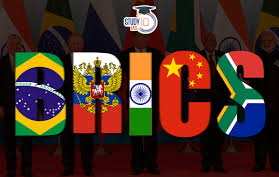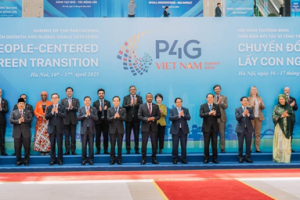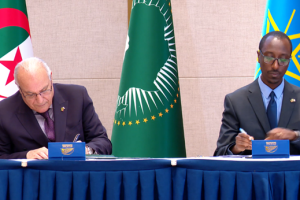
This time around, countries of the world have been collaborating through organizations like the UN, OECD, and the World Bank, addressing global challenges like climate change, trade, and development, promoting sustainable growth and international cooperation. Likewise, African and other developing nations have been working for properly leveraging resources, technology and other potential sectors to make a difference.
Spurred by similar goals of inspiring and driving multi-stakeholder action on the world’s most pressing issues, a number of global summits have or are taking place this year. Yes, gatherings like BRICS Summit, G7 summit, G20 Summit, World economic forum are fueled targeting at fostering global alliance for meaningful changes.
For instance, Ethiopia has been actively tracking a range of efforts to strengthen its diplomatic relationships globally, driven by the need stimulate economic growth, social progress, to tackle regional challenges, as well as enhance its status in international forums.
Additionally, it aims to ensuring environmental sustainability and promote peace and stability, particularly in neighboring countries like Sudan and South Sudan. The country has taken a leadership role in mediating conflicts, reflecting its commitment to fostering regional peace.
The country is also focusing on forging ties with key global players, including the United States, China, and the European Union. These partnerships are essential for attracting foreign investment and securing vital development aid. The country’s strategic location in the Horn of Africa positions it as a crucial player in regional security and trade.
In recent years, Ethiopia has faced numerous challenges, including political instability, economic pressures, and environmental issues such as climate change. To address these multifaceted problems, the Ethiopian government is strategically aligning itself with global partners that can provide not only economic support but also political backing.
One year ago, the country joined the BRICS bloc, recognized for its significant influence on global economic dynamics, presents a unique opportunity for Ethiopia to leverage resources, technology, and expertise.
By participating in BRICS blocks, Ethiopia aims to stimulate economic growth by tapping into new markets and attracting foreign investment from BRICS countries, which will bolster job creation and industrial development.
Also, Ethiopia’s engagement with BRICS is the need for increased foreign direct investment (FDI). The country has identified infrastructure development as a crucial component of its growth strategy through strengthening ties with BRICS nations. Hence, Ethiopia and other BRICS member countries’ efforts to cement bilateral and multilateral relations would bear fruits within the shortest time possible.
The country aims to attract investments in critical sectors such as energy, transportation, and agriculture. For instance, China has been instrumental in funding and constructing major infrastructure projects in Ethiopia, including roads, railways, and power plants. Such investments not only bolster economic growth but also contribute to reduction of poverty.
Minister of Foreign Affairs Spokesperson, Ambassador Nebiat Getachew highlighted Ethiopia’s strategic engagement with global coalitions, notably its recent accession to BRICS, underscoring that every action taken is motivated by the objective of fostering national progress and promoting unity across Africa.
Ethiopia’s diplomatic efforts, whether through bilateral or multilateral channels, are driven by a commitment to safeguard its national interests, he emphasized.
He further explained that the key consideration in Ethiopia’s decisions to join economic unions, political coalitions, or engage in bilateral relationships, such as its involvement with BRICS a burgeoning economic alliance with significant benefits centers on national interest.
However, he clarified, joining these alliances does not imply that Ethiopia dismisses or disregards any existing partnerships or economic collaborations. The primary motivation for joining any bloc is fundamentally tied to our national interests.
The spokesperson also stressed the increasing significance of attracting foreign investment through proactive economic diplomacy.
Nebiat noted that economic diplomacy has emerged as a central focus of Ethiopian foreign policy, aimed at attracting investors and business leaders to explore opportunities within Ethiopia.
In this regards, Ethiopian embassies across the globe are intensifying efforts to communicate these changes to international counterparts and various investment groups, conveying that Ethiopia is open for business.
Therefore, an increasing number of companies are visiting Ethiopia to witness these opportunities firsthand and benefit from our newly opened economic landscape, noted the spokesperson.
Moreover, its participation in BRICS serves as a platform for knowledge exchange and technological advancement. The collaboration with countries like Russia, India and Brazil allows Ethiopia to access innovative agricultural practices and sustainable technologies that can enhance food security and resilience against climate change.
Furthermore, it seeks to decreasing reliance on traditional Western allies while enhancing its global presence. Collaborating with BRICS nations also opens doors for technology transfer, especially in vital sectors like agriculture and renewable energy, essential for the country’s progress. Also, to ensuring sustainable agricultural practices that can withstand environmental challenges.
On the other hands, Ethiopia’s geopolitical position in the Horn of Africa further underscores the importance of its alliances. The region is characterized by complex political dynamics and security challenges that can hinder development efforts.
Additionally, Ethiopia seeks to bolster its regional influence, foster stability and support regional integration across Africa through aligning with BRICS and other international partners. Collaborative efforts in security and development can lead to a more conducive environment for growth and cooperation among neighboring countries.
Reiterating Ethiopia’s profound commitment to the African Union and its foundational principles, Nebiat pointed out that Ethiopia has long served as a cornerstone for the entire continent, making substantial contributions to the establishment of both the African Union and its predecessor.
“Since the African Union’s beginning, Ethiopia has been an active member, promoting the core principle of Pan-Africanism alongside other member states to realize the Agenda 2063 vision for Africa.”
Through its strategic diplomatic initiatives, relentless pursuit of economic growth and steadfast dedication to its African identity and continental objectives, Ethiopia continues to play a pivotal role in shaping its future while significantly contributing to the continent’s development.
This commitment not only reflects Ethiopia’s aspirations but also highlights its role as a leader in regional integration. By fostering partnerships that align with its national priorities, Ethiopia is enhancing its capacity to navigate global challenges and seize emerging opportunities.
Furthermore, Ethiopia’s commitment to sustainable development is evident through its adherence to the United Nations’ Sustainable Development Goals (SDGs). The government recognizes that achieving these goals requires reform of various country policy strategies to additional to collective effort, and partnerships with BRICS nations.
Moreover, the government is prioritizing economic diplomacy by highlighting investment opportunities in sectors such as agriculture, technology, and manufacturing. Initiatives like the Homegrown Economic Reform agenda exemplify Ethiopia’s ambition to diversify its economy and reduce reliance on foreign aid.
Recently, the country government is implementing policies designed to enhance the business environment, attract foreign investment, and stimulate local entrepreneurship like micro economy policy. Through simplifying regulations and providing incentives, Ethiopia aims to create a more favorable climate for both domestic and international businesses.
Additionally, the establishment of industrial parks and special economic zones is a significant aspect of this strategy. These zones are designed to attract manufacturing and export oriented industries, providing jobs and fostering economic diversification. The government is also prioritizing infrastructure development, particularly in transportation and energy, to support industrial growth and improve connectivity.
BY FIKADU BELAY
THE ETHIOPIAN HERALD WEDNESDAY 9 APRIL 2025





